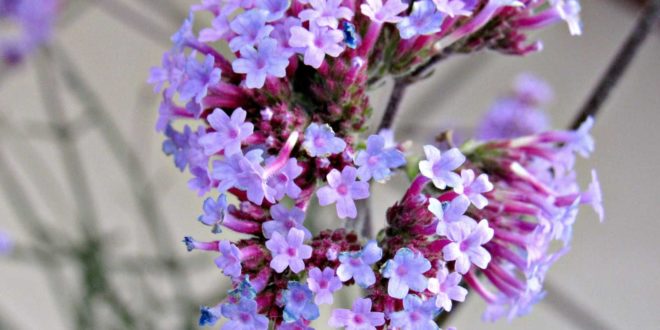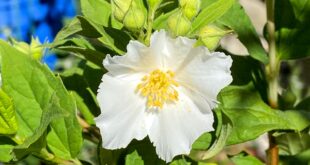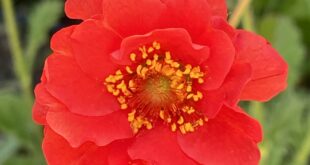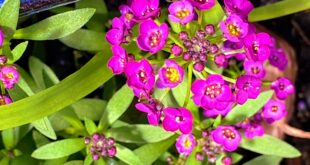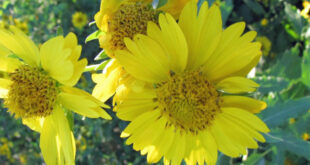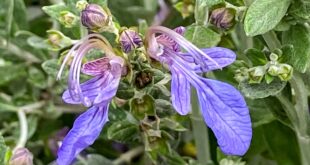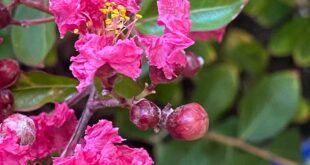New to our Sunnyvale garden in 2018 is Purple Top vervain (Verbena bonariensis). It is a low maintenance shrub with pretty purple flowers that attract lots of pollinators: butterflies, bumble bees, commas, honey bees, hummingbird moths, hummingbirds, and more. . We planted it in one of our pots out front which gets full southern exposure. Height: 2 – 4 feet; Width: 1 to 3 ft
This verbena is native to tropical South America where it grows throughout most of the warm regions, from Colombia and Brazil to Argentina and Chile.
Pros:
- Easy ‘no care’ plant: Drought-tolerant; frost-tolerant (USDA zones 7 to 10)
- Long bloom period – extended with deadheading
- Easy to view other plants and wildlife ‘through’ it
- An easy care annual for those in colder garden zones
- Tall plant that does not require staking
- Can often be found at nurseries or plant sales
- Good ‘plant’ to purchase since seedlings start slow
Cons:
- Flower heads die out earlier without extra care
- Can start to bend slightly if exposed to high force winds
- Susceptible to powdery mildew and white flies
Tips:
- Start with plants for a longer bloom season
- Deadheading will promote more flowering
- Works well in combination with some milkweed species…gives egg laying mamas a convenient station to refuel
Pruning:
- Cut back the plant in early spring as new growth resumes. Remove all the leggy, weak branches by cutting them off with shears within 1/4 inch of a leaf or bud. Remove no more than one-third of the verbena’s width or height.
- Remove up to one-fourth of each branch’s length in midsummer as blooming completes. Verbena should flower for most of the summer if the excess length and old flowers are removed from the plant when flowering slows.
- Trim the plant in fall as it enters a period of semidormancy. Verbena leaves remain green but flowering stops at the onset of dormancy. Cut back spent flower stems and any tall, leggy stems with the shears. Remove dead or damaged leaves and branches.
